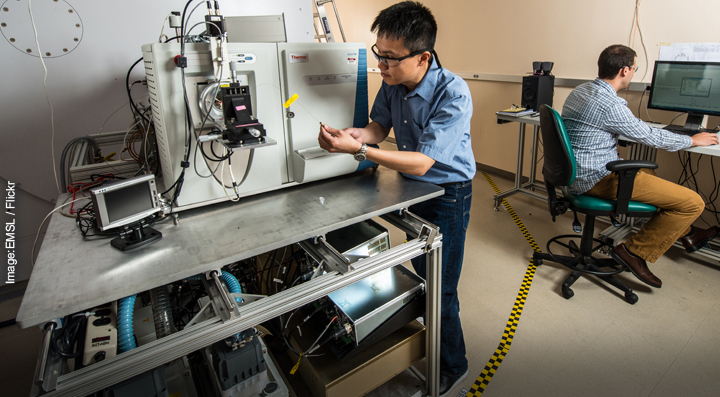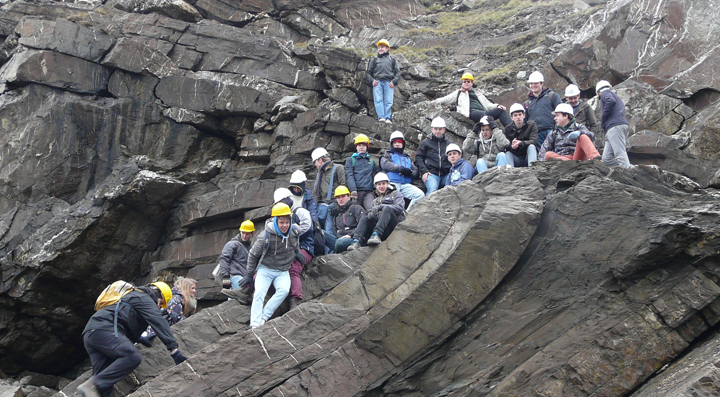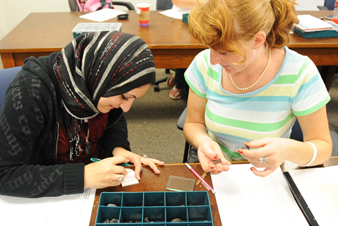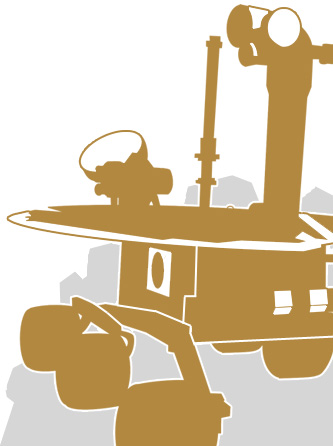Qualifications
 The Importance of Science and Maths
The Importance of Science and Maths
Geology calls on a wide spectrum of other sciences in order to build up a detailed and accurate picture of the conditions that existed on Earth at a particular point.
For students entering full-time geology degrees from school, evidence of competence in science is normally required (e.g. two A/AS level/Scottish Higher passes in sciences). You should check precise admissions requirements with the departments that interest you and/or the guidance offered by the University Central Admissions Service (UCAS).

 Preferred subjects are:
Preferred subjects are:
Physics
Physics is the study of matter, energy and forces. Geophysicists use the physical properties of rocks, such as their magnetism or density, to build up a picture of the Earth's interior, from the inner core to the rocks beneath our feet. An understanding of physics helps geoscientists study how rocks and materials behave under stress - vital in planning construction projects and designing buildings which will limit the dangers of tremors in earthquake zones.
Energy and mining companies use geophysical techniques to find out where potential resoources are located, informing the decision about whether to drill or not.
Chemistry
Chemistry is important because geoscientists use water, rock and mineral chemistry data to work out the depositional environment of rocks, fluids and gases that they are investigating. The presence of certain minerals can indicate the likelihood of other deposits of economic value. Chemistry is also fundamental to climate science, and to many areas of applied and research geochemistry.
Similarly, many rocks are classified using their chemical composition, and this can only be determined through diagnostic tests in a laboratory. Being able to classify and map the extent of rocks is important in many areas of geosciences, such as engineering. Buildings, bridges, roads and railways can only be made to last if we know what their foundations are built into!
Maths
Maths underpins many areas of geoscience. Hydrogeologists and engineering geologists use calculations to work out water pressures and volumes, slope stabilities and stresses on weight bearing structures. Mathematical geology aids the formulation of models and scientific theories and is a valuable skill in the fields of navigation, geophysical surveys, oil production, and research science.
Biology
A knowledge of the evolution and diversity of life and atmospheric processes is essential for a career in palaeontology. Micropalaeontology – the study of the very smallest fossils such as plankton and pollen – is important in the oil and gas industry, where detailed analysis of drilling core is vital to locating of hydrocarbon deposits. Biology is also useful to the professional working in forensic geology, conservation and the environmental sector.
Other subjects
Geography is acceptable for some courses; geology is welcomed but not essential.
Due to the opportunities for geoscientists overseas, studying modern languages at school may give you an advantage later, should you wish to travel. If you are thinking of taking a 4th subject in years 12 or 13 why not consider French, Spanish or maybe even Russian?









